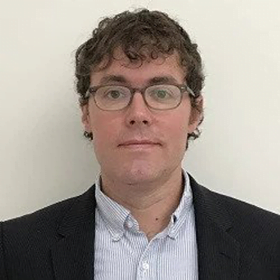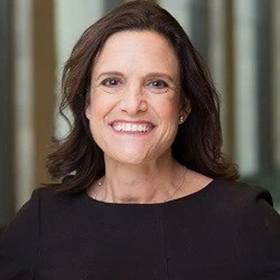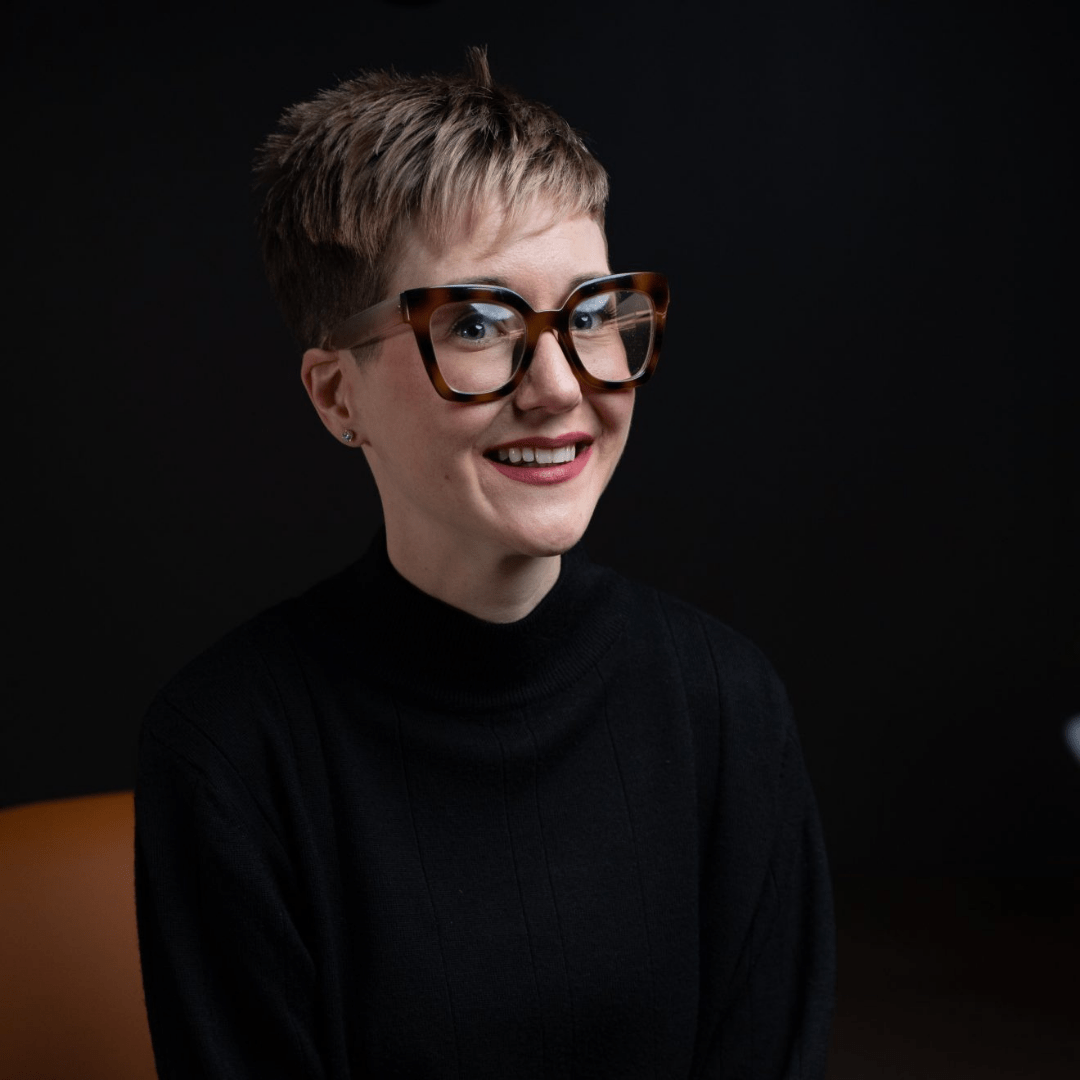|
|
Letter from the Executive Director
Lillian Kreppel
The new year is a time for reflection, as well as, looking ahead. Some people make resolutions to break bad habits, create new ones, or maintain existing ones. HPV Cancers Alliance also has resolutions that we intend to keep.
|
Our vision is to one day eliminate HPV associated cancer deaths. How amazing would that be! We work on this each and every day by educating the public and the medical societies about the HPV virus and the 6 cancers it can cause. We focus on prevention, early detection, and effective treatment. We know that an informed person becomes empowered and empowerment can lead to positive outcomes.
|
Our primary goal for 2022 is already happening. HPV Cancers Alliance is uniting like-minded non-profits and institutions to cross promote each other’s programs and to partner on projects. We have catalyzed a national movement of key stakeholders who are educating and inspiring patients, caregivers, and doctors. Collectively, our voices are amplified so that we can and will bring about positive and measurable changes, highlighting our individual missions.
|
We hope that you will continue to learn something from each and every newsletter and to also enjoy the content we provide. Happy New Year!
|
|
|
|

|
|
|
NEWS
|
Bill H.R.1550: PREVENT HPV Cancers Act of 2021
Promoting Resources to Expand Vaccination, Education & New Treatments for HPV
|
We are thrilled to announce that a bill central to our mission of ending HPV cancers has passed the House of Representatives and is coming up for a vote in the Senate.
|
|
The PREVENT HPV Cancers Act aims to raise awareness about HPV and HPV-related cancers in a national public awareness campaign to educate providers, parents, and the general public about the lifesaving HPV vaccine. Populations in need or greater awareness that this bill aims to help include rural populations and men.
|
|
According to our mission partners HPVandMe, "Four out of 10 HPV cancers occur in men.
|
|
HPV-related oropharyngeal cancer is now the #1 HPV cancer, mostly in middle age men, surpassing incidents of cervical cancer in the US." However, "a December 2021 review by the Partnership for Male Youth found that, 'after they reach puberty most males become disengaged from the health care system; unlike young females, who transition from pediatricians to gynecologists for their health care, young males are left adrift for health care once they leave pediatric care.' As a result, young males are not learning about HPV cancer prevention."
|
|
|
|
|
Please contact your US Senators and encourage them to support Bill H.R. 1550
|
|
|
|
|

|
|
Welcome to our Medical Advisory Board
|
Dr. Jacqueline Jones
|
Jacqueline Jones MD is a board-certified ear, nose, and throat (ENT) specialist and a head and neck surgeon. She completed her undergraduate degree at Smith College in Northampton, Massachusetts, before earning her medical degree at Cornell University Medical College in New York, New York. She served her internship in general surgery and her residency in otorhinolaryngology at the Hospital of University of Pennsylvania in Philadelphia. Dr. Jones went on to complete a rigorous fellowship training in pediatric otolaryngology at Harvard Medical School and Boston Children’s Hospital.
|
|
Dr. Jones is a member of the faculty at Weill Cornell Medical College. She is also a founding member of vaccinate4love.org, a foundation aimed at encouraging vaccination, especially in communities of color.
|
|
|

|
Dr. Abraham Aragones
|
Another member of our Medical Advisory Board Member spoke to the New York Times to emphasize the high cost of parents in the US not vaccinating their children. "If not for the slow adoption of the HPV vaccine by the parents of adolescents, we would likely be well on our way to eliminating nearly all cases of cervical cancer and the five other HPV-caused cancers, 45,000 cases of which are diagnosed annually in the United States."
|
|
|
|
|

|
Dr. Keith Sigel
Our Board Member Dr. Keith Sigel is leading an extremely important study evaluating anal cancer screening.
|
"The Icahn School of Medicine at Mount Sinai has been awarded a grant of more than $4 million by the National Cancer Institute for a large-scale study to evaluate anal cancer screening in high-risk women who have been previously diagnosed with human papillomavirus (HPV) infection...anal cancer is one of the fastest-rising cancers—in incidence and death rates—in the United States, with the most significant increases occurring among women ages 50 and older, according to the Journal of the National Cancer Institute. Among these women, annual rates of new cases of anal cancer have grown 5 percent each year during the last two decades, and the number of new anal cancer diagnoses is expected to overtake those of cervical cancer in older women during the next decade.
|
|
The five-year trial will evaluate the effectiveness of anal cancer screening interventions for women who are not infected with HIV and who have a history of HPV-related precancers in the lower genital sites including the cervix, vagina, and vulva. Evidence of HPV infection at one genital site has been previously associated with HPV infection in the anus, as well as risk of precancers in the anus. Approximately 90 percent of anal cancers are associated with HPV infection."
|
|
|
|
|
|
|
EVENTS
|
Cervical Cancer Awareness Month
|
This month, HPV Cancers Alliance worked with the American College of Obstetrics and Gynecology (ACOG) to highlight cervical cancer symptoms and dangers, the importance of screening, and encourage women to find out more about the HPV vaccine. We participated in an ACOG Tweet Storm on Thursday, January 6th from 2 to 3pm ET. Along with other like-minded organizations, we shared graphics and facts on cervical cancer and encouraged women to schedule their annual gynecological exams.
|
|
International HPV Awareness Day Summit
|
Save the Date: Friday, March, 4 2022
|
|
We are partnering with the IPVS (International Papillomavirus Society) to produce the largest worldwide (virtual) conference on HPV. We aim to promote the worldwide exchange of ideas, knowledge, and research materials among basic, clinical and public health research professionals concerned with human and animal papillomaviruses and their associated diseases. Stay tuned for registration information and guest speakers announcements.
|
|
HPV PREVENTION WEEK
Expert Advice in Honor of HPV Prevention Week
|
- Get an HPV vaccine: According to some of our board members, HPV vaccines may prevent a progression to cancer or a recurrence of cancer in people who already have high-risk HPV or have had an HPV cancer.
- If you are a woman, get your PAP tests and ask if the test is also testing for HPV. Be sure to follow up with your physician to get the PAP test results and connect with your GYN directly to talk about next steps if your results are concerning.
- Stop smoking. Studies have shown that smoking is correlated with progression to cancer in people with high-risk HPV and also to a poorer prognosis in patients with cancer.
- Boost your immune system by sleeping well, eating well, exercising, and reducing stress.
- Eating broccoli may help clear HPV according to some studies. See our interview with Dr. Blank for more information about this.
- Take an AHCC supplement. Visit the AHCC Research Association for a list of authentic AHCC supplements. (See a recent study about AHCC and head and neck cancer here)
- Ask your gynecologist or another doctor for a Digital Anal Rectal (DARE) Exam. "Digital anal rectal examination (DARE) has the potential to detect anal cancers ≥ 0.3cm diameter." Read more about this here.
- See your dentist regularly, so he or she can help look for anything unusual. Oropharyngeal cancers in both men and women are on the rise.
- Look out for symptoms of Oropharyngeal cancer:
- A sore on the lips or in the mouth that does not heal
- Red or white patches in the mouth that don’t go away
- Pain, tenderness, or numbness on the lips or in the mouth
- A lump, thickening, or swelling in or around the mouth or throat
- A rough or crusty or eroded area on the lips
- Difficulty chewing, swallowing, speaking, or moving the jaw or tongue
- A change in the way your teeth fit together when you close your mouth or the way your dentures fit
- A cough or sore throat that won’t go away
|
|
|
IN THE OFFICE
with Dr. Stephanie Blank
|

|
|
|
Stephanie V. Blank, MD, is the Director of Gynecologic Oncology for the Mount Sinai Health System, a Professor in the Department of Obstetrics, Gynecology, and Reproductive Science at the Icahn School of Medicine at Mount Sinai, and the Director of Women’s Health at the Blavatnik Family – Chelsea Medical Center at Mount Sinai. Dr. Blank, who specializes in the treatment of patients with ovarian, cervical, and uterine cancers, and the care of women at increased genetic risk for gynecologic cancer, joined the Icahn School of Medicine at Mount Sinai in 2017. Previously, she spent 15 years at the NYU Langone Medical Center, where she rose from Assistant to Associate to Full Professor, built a busy clinical practice, launched and ran the Gynecologic Oncology Fellowship Program, developed a cancer risk assessment program for underserved women at Bellevue Hospital, and directed the Gynecologic Oncology Research Program.
|
|
Dr. Blank’s research focus is on genetic predisposition to cancer, novel therapeutics and translational research, survivorship, quality of life, and fertility preservation. She serves on the Ovarian Committee of the national cooperative group NRG and has been a principal investigator for investigator-initiated as well as industry-sponsored and cooperative group trials. Dr. Blank is broadly published in peer-reviewed journals and text books and frequently presents at seminars and conferences on women’s gynecologic oncology issues. She is the recipient of many honors and awards, including Castle Connolly Top Doctors, Super Doctors, and the Council on Resident Education in Obstetrics and Gynecology Teaching Award, among others
|
|
Interview Topics:
- Screening for HPV and HPV cancers
- The future of PAP tests
- The benefits of vaccines
- Preventing HPV and its related cancers
- Treatments for dysplasia and cervical cancer
|
|
|
|
|
|
SURVIVOR STORY: A CERVIVOR
By Morgan Newman
|

|
Life was going well. I was 24, had a great social life, moved into my first apartment, I was becoming more established in my job, and I was diving into a new relationship. I’ve always been one to be proactive with my health so as per usual, I went in for my yearly exam. For the first time, I received a letter back stating I had abnormal results. It was then I was scheduled for a colposcopy and further testing. I didn’t think twice because a lot of my friends had been through these motions before and they were fine. The time came for my appointment. I was expecting everything to be normal but the pain and hemorrhaging were trying to tell me otherwise. The provider referred me to a gynecologic oncologist next.
|
I never connected the dots to what seeing an oncologist could mean for me. I was 24, what could possibly be wrong? The oncologist performed a few biopsies and then he and his Physicians Assistant met me in a small conference room afterward. He flipped open a women’s health booklet to a teal-colored paged and said, “I’m sorry Miss Newman but you have cervical cancer.”
|
|
On February 4, 2015, my life forever changed. I was alone, hysterical, and in shock. Walking out of those hospital doors seemed like a bad dream. I remember picking up my phone to make all of those difficult calls. Then, I had to go home to my boyfriend at the time and tell him that all the dreams we discussed just a couple of nights before would be gone.
|
|
|
|
|
|
|
Clinical Trials
There are currently 318 HPV and HPV-associated cancer trials currently recruiting. Click below to see if you qualify.
|
|
|
|
|
|
|
|
|
|
|
|
   
|
|
|
|